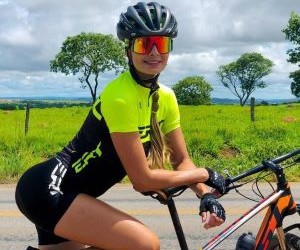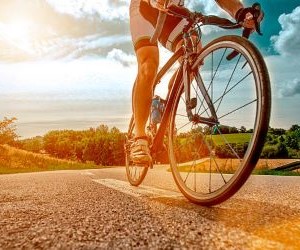Discover the powerful benefits of cycling every day—from better health and mental clarity to eco-savings and long-term fitness—one pedal stroke at a time.
HOW DO I FUEL PROPERLY BEFORE LONG CYCLING RIDES?
Fueling before long rides is both science and art. The body relies heavily on carbohydrates for endurance, while protein, fat, and hydration also play supporting roles. Poor fueling can lead to bonking—running out of glycogen and hitting the dreaded wall—while proper fueling ensures sustained energy, sharper focus, and stronger performance. Whether you’re prepping for a 3-hour training ride or a full-day gran fondo, understanding what, when, and how much to eat can make the difference between cruising and crawling.

Maximizing carbs before long rides
Carbohydrates are the body’s preferred fuel during endurance efforts, stored as glycogen in muscles and the liver. Before a long cycling ride, the goal is to top up glycogen stores so the body has a full tank of accessible energy. Cyclists typically aim for a pre-ride meal containing 2–4 grams of carbohydrate per kilogram of body weight consumed 3–4 hours before rolling out. This could include oats, rice, pasta, or bread paired with easily digestible toppings like fruit or honey.
The concept of carbohydrate loading, once thought to require days of high-carb eating, is now more flexible. For rides lasting longer than 90 minutes, a focused high-carb meal the night before and another on the morning of the ride is often sufficient. Simple carbs like bananas or energy bars can also be consumed 30–60 minutes before the start for an extra top-up. However, cyclists should avoid heavy, greasy, or overly fibrous foods that may cause gastrointestinal distress once the ride begins.
Key carb fueling tips
Consume 2–4 g carbs per kg body weight 3–4 hours before
Focus on low-fiber, easily digestible sources
Add a small carb snack 30–60 minutes pre-ride
Prioritize carbs the night before as well
Dialing in carbohydrate intake ensures glycogen reserves are maxed out, delaying fatigue and keeping energy stable deep into the ride.
Pre-hydration and electrolyte balance
Hydration is often overlooked in pre-ride fueling, yet even mild dehydration can sap power and endurance. Cyclists should aim to begin long rides already hydrated rather than trying to play catch-up on the road. A good strategy is to drink 500–750 ml of fluid 2–3 hours before riding, then sip another 250–500 ml in the 30 minutes prior. Water works for short rides, but for endurance efforts, adding electrolytes helps maintain sodium, potassium, and magnesium levels, which regulate muscle function and prevent cramping.
Caffeine can also be a useful performance enhancer when timed correctly. Studies suggest that consuming 3–6 mg of caffeine per kilogram of body weight about 60 minutes before exercise can increase endurance and perceived effort. For many cyclists, this means a simple cup of coffee or a caffeinated gel before rolling out. However, it’s important to test tolerance in training rather than experimenting on race day.
Pre-ride hydration checklist
Drink 500–750 ml fluids 2–3 hours before
Add electrolytes for longer rides or hot climates
Sip another 250–500 ml within 30 minutes of departure
Optional caffeine boost 60 minutes before
Hydration strategies complement carbohydrate fueling, ensuring both muscles and nervous system function optimally when the ride begins.
Fine-tuning protein, fat, and meal timing
While carbs dominate pre-ride fueling, protein and fat play supporting roles. Moderate protein intake before a ride (15–25 grams) helps reduce muscle breakdown and supports recovery afterward. Good sources include eggs, yogurt, or lean poultry paired with carb-heavy foods. Fats should be included sparingly—they slow digestion and can cause discomfort if consumed in excess. Healthy fats like avocado or nut butter in small amounts are fine, but the focus should stay on carbohydrates.
Timing is critical. A large, balanced meal 3–4 hours before the ride gives enough time for digestion. For early-morning starts, cyclists often eat a lighter meal or snack an hour before, then rely more on on-bike fueling. The golden rule is to test fueling strategies during training, not on event day. Each rider’s digestive tolerance varies, and experimentation ensures confidence when it matters most.
Balanced pre-ride nutrition
Include 15–25 g of protein with pre-ride meal
Limit fats to small portions for digestion ease
Time meals 3–4 hours before, with snacks closer to ride
Practice nutrition strategies during training rides
Proper pre-ride fueling is not a one-size-fits-all formula. Balancing carbs, protein, and hydration while personalizing timing builds a reliable strategy that prevents bonking and maximizes endurance.
YOU MAY ALSO BE INTERESTED








